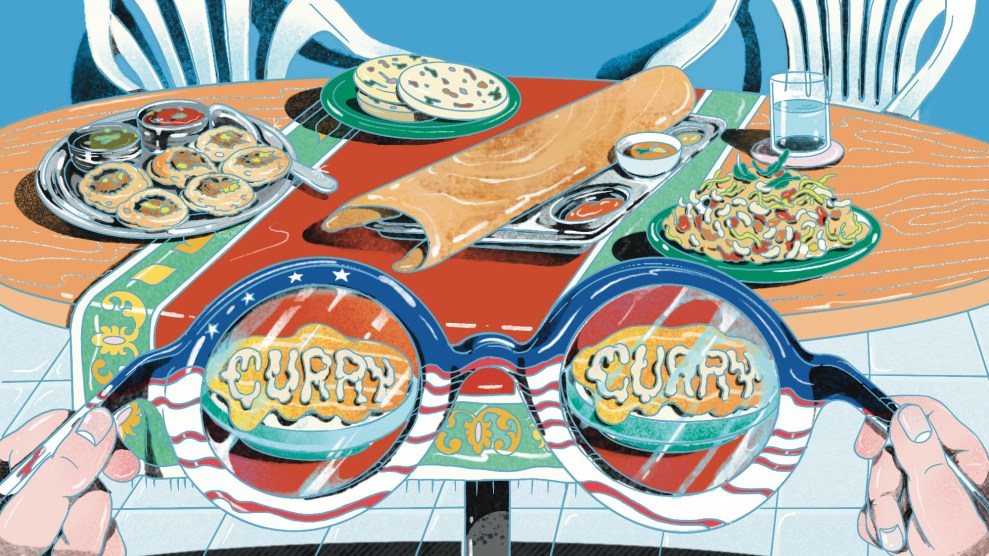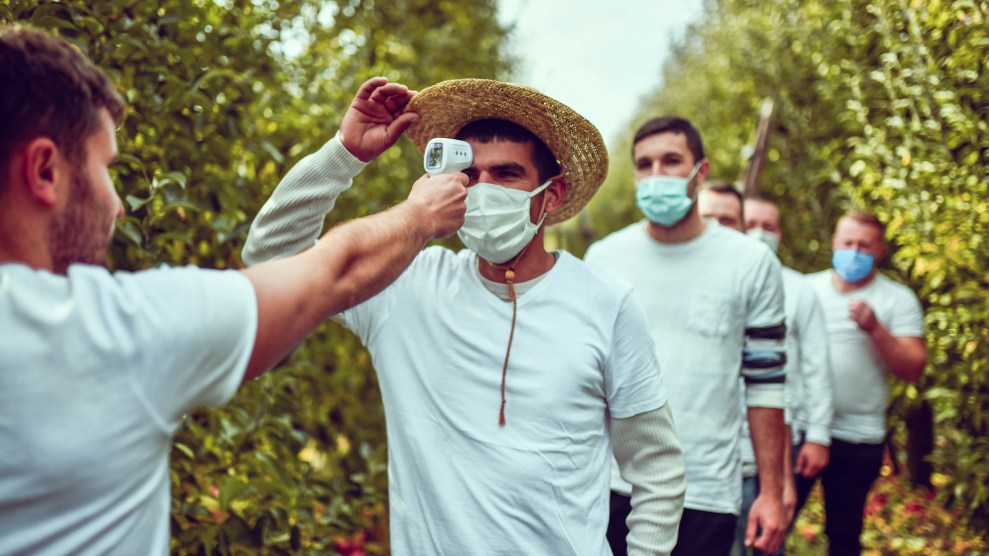I’m in New York City for a Mother Jones event, so no big blog post till Friday. Meantime, here’s a few small bites to tide you over.
• New York Times restaurant critic Sam Sifton reviewed uber-fancy Manhattan sushi temple Masa and came away impressed by the “expertly diced, top-grade fatty bluefin tuna tartare.” The ocean-conservancy NGO Oceana rapped his knuckles on Twitter for that line, because bluefin tuna populations stand on the verge of collapse. Until stocks recover, eating it is a bit like tucking into a drumstick of Kentucky-fried eagle. Sifton reacted to Oceana’s jab by taking the question to his readers: “Should restaurants continue to serve bluefin? Should diners continue to buy it if they do? Should restaurant critics?” My take is: no, no, and no. If restaurant critics and food writers generally want to live in a world that sustains delicious things like sushi, they have an obligation to educate the public and chefs when things have taken a dire turn. I’ve taken Sifton to task on similar grounds before, and also gone back and forth with his Times colleague, the generally wonderful Mark Bittman.
• Speaking of the Times, I’m excited by the new cooking column by David Tanis, who spends half the year working as executive chef at Berkeley’s iconic Chez Pannise, and the other half writing cookbooks in France. The new column’s theme is the important one of how to cook well in a tiny urban kitchen, and the maiden recipe is beyond reproach: cannellini bean salad with shaved spring vegetables.
• And speaking of sushi, here’s the teaser to an interesting-looking new documentary: Sushi: the Global Catch. It asks how it came to be that “beautiful raw pieces of fish and rice now appear from Warsaw and New York to football games in Texas towns”—and whether “this growth continue without consequence.”
• I can’t say enough good things about Barry Estabrook’s new book Tomatoland. In his gentle, evocative prose, Estabrook tells the brutal story of what industrial agriculture has done to tomatoes and the workers who grow them. Here’s an excerpt, published on Gilt Taste, and here’s Jane Black’s insightful Washington Post review of it.
• Bananas are another golorious fruit that has all but been squashed under the heel of industrial agriculture. Over on Equal Exchange’s Small Farmers, Big Changes blog, Phyllis Robinson has a long and detailed post about what smallholder farmers in Latin America have to go through to reach U.S. consumers directly, circumventing the monopoly on banana distribution enjoyed by Dole and Chiquita (formerly the infamous United Fruit).







